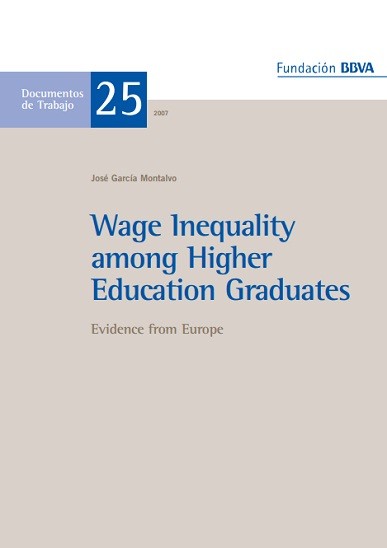
PublicationWorking Papers
Wage Inequality among Higher Education Graduates
Evidence from Europe
Recent research point out that higher education has no significant effect upon economic growth. However, the data of many countries show a substantial increase in the salary prize of going to university. Most of the explanations argue that the increase in salary relative to universities is due to the acceleration of technology change, which increased the demand for university graduates. However, in the field of labour economy a residual inequality has been detected, or within every educational group, it has also increase among university graduates.
This working document distinguishes between the level of education and the level of competencies/skills as well as their use. Furthermore, it contrasts the implications of a double model of residual inequality using and extensive sample of higher education graduates in several European countries. The empirical results show a positive relationship between inequality within each educational group and their overqualification level, using a branch of studies as a stratification variable. These results demonstrate that the demand of several competencies/skills, that cannot simply be measured as of the level of education, has increased.
